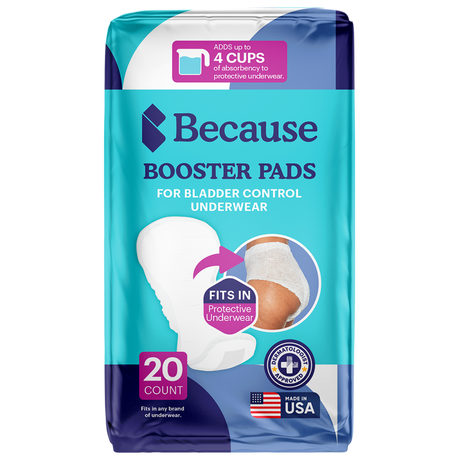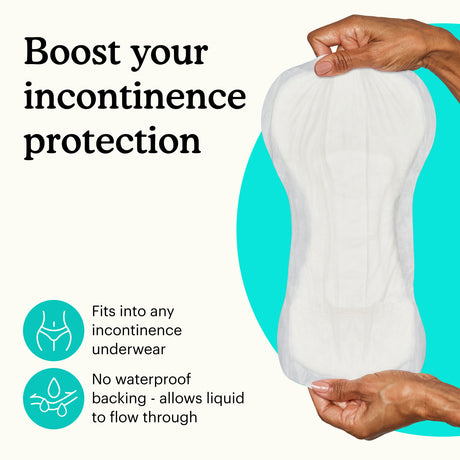As our bodies undergo a natural evolution, so too does our understanding of pleasure, connection, and self. Menopause is a transformative phase, marked by hormonal shifts that influence not only physical well-being but also emotional and sexual aspects of our lives. Whether you're navigating changes in desire, grappling with physical discomfort, or seeking ways to enhance connection with your partner, this blog is designed to be a guide—a source of information and support.

What is Menopause?
Defined as the permanent cessation of menstruation and fertility, menopause is an intricate biological process accompanied by a cascade of hormonal fluctuations, most notably the decline in estrogen levels. During menopause, a series of complex changes unfold within the female body, impacting not only the reproductive system but also influencing various organs and tissues. The intricate interplay of hormones, including follicle-stimulating hormone (FSH) and luteinizing hormone (LH), orchestrates the transition from the fertile phase to a post-reproductive state.
When we think of menopause, colloquially we are often referring to the period before, during, and after menopause which are defined as follows:
- Perimenopause: 3-7 years before the onset of menopause beginning in the late 40s or early 50s
- Menopause: The end of the reproductive period, on average menopause occurs at age 51
- Postmenopause: Occurs after a person has gone 12 months without a period

What Symptoms of Menopause Can Impact Intimacy?
Fluctuations in estrogen levels play a central role in the manifestation of menopausal symptoms including hot flashes, night sweats, vaginal dryness, mood swings, sleep disturbances, and bone density loss.
During menopause, a woman's ovaries gradually decrease their production of estrogen, a key reproductive hormone. Estrogen regulates various bodily functions, and its decline can lead to a range of physiological and psychological changes. This drastic change in estrogen levels can cause many to struggle with intimacy. One study which analyzed 43 other studies found that the prevalence of sexual dysfunction (defined as: “disturbance in the sexual response cycle or pain associated with sexual intercourse”) in postmenopausal women is between 68% and 86.5%.
Vaginal Dryness
Vaginal dryness is a common and often bothersome symptom experienced by many women during menopause. In a study conducted over 17 years, the rate of participants who experienced vaginal dryness increased with age. Participants between ages 42 and 53 saw a prevalence rate of 19.4%. However, by the time the group reached ages 57-69 the rate had increased to 34%. Additionally, it is estimated that approximately 50% of post-menopausal women experience vaginal dryness.
This condition arises due to declining estrogen levels, which play a crucial role in maintaining the health of the vaginal tissues. Estrogen is responsible for promoting blood flow to the pelvic region and sustaining the thickness, elasticity, and lubrication of the vaginal walls.
As menopause progresses, the reduced production of estrogen leads to changes in the vaginal lining, resulting in dryness, discomfort, and an increased susceptibility to irritation. Vaginal dryness can contribute to pain or discomfort during sexual activity and may also lead to urinary issues.
While this symptom is a natural consequence of hormonal fluctuations during menopause, various therapeutic approaches, such as hormone replacement therapy, moisturizers, and lubricants, exist to alleviate the discomfort and enhance the overall quality of life for women experiencing this aspect of the menopausal transition.
Libido Changes
Libido changes are a notable aspect of the menopausal experience for many women. Around 5% of American women experience distress from arousal difficulties. That number increases to 7.5% for women between 45 and 64. The decline in estrogen levels during menopause can influence sexual desire and function. Fluctuations in hormonal balance may lead to a decrease in libido, impacting both the physical and psychological aspects of sexual well-being.
Factors such as vaginal dryness, changes in mood, and alterations in body image can contribute to a diminished interest in sexual activity. However, it's crucial to recognize that libido changes are highly individual, with some women experiencing an increase in sexual desire during this phase.
Understanding and addressing the multifaceted nature of libido changes during menopause involve open communication with partners, exploring different coping strategies, and, if necessary, seeking professional guidance. By acknowledging and navigating these changes, women can foster a healthy and satisfying sexual well-being during this transitional period.
Stress & Anxiety
Stress and anxiety often weave into the tapestry of menopausal experiences, adding another layer of complexity to this transformative phase in a woman's life. Hormonal fluctuations, particularly the decline in estrogen, can impact neurotransmitters like serotonin and norepinephrine, influencing mood regulation and contributing to heightened stress levels and anxiety. But that’s not all, stress and anxiety can also:
- Increase cortisol and epinephrine leading to a lower libido
- Increase blood pressure, leading to changes in blood flow to the genitals which may interfere with genital arousal
- Contribute to vaginismus, a condition which causes involuntary tensing or contracting of muscles around the vagina
Hot flashes, sleep disturbances, and physical discomfort associated with menopausal symptoms may also contribute to an increased sense of stress. Additionally, the psychological adjustments to changes in reproductive identity and societal perceptions of aging can further intensify feelings of anxiety.
Recognizing and addressing the interplay between hormonal shifts and emotional well-being is crucial during menopause. Lifestyle modifications, stress management techniques, and support networks can play pivotal roles in mitigating the impact of stress and anxiety, fostering a more resilient and balanced approach to this significant life transition.

What are the Treatment Options for Menopause Symptoms?
Navigating the diverse landscape of menopausal symptoms often prompts individuals to explore various treatment options tailored to address their specific needs. While menopause is a natural phase in a woman's life, the associated symptoms can significantly impact overall well-being.
Treatment approaches range from lifestyle adjustments and dietary modifications to hormone replacement therapy (HRT) and complementary therapies. The goal is not merely symptom suppression but the optimization of quality of life during this transition. This exploration of menopausal treatments aims to shed light on the array of options available, providing individuals with informed choices to manage and alleviate the physical, emotional, and psychological facets of this transformative journey.
By understanding the nuances of these treatments, individuals can embark on a path that aligns with their preferences and health considerations, promoting a more seamless transition through the menopausal phase.
Over-the-Counter Options
Several over-the-counter (OTC) treatment options are available to help alleviate symptoms associated with menopause. While these remedies may provide relief for some women, it's essential to consult with a healthcare professional before starting any new treatment regimen. Here are some common OTC options:
- Vaginal Lubricants and Moisturizers: Over-the-counter vaginal lubricants and moisturizers can help address vaginal dryness and discomfort during intercourse.
- Menopause Supplements: Some women find relief from menopausal symptoms by taking OTC supplements containing ingredients like black cohosh, soy isoflavones, or red clover. However, the efficacy of these supplements varies, and their use should be discussed with a healthcare provider.
- Calcium and Vitamin D Supplements: Osteoporosis becomes a concern during menopause due to decreased estrogen levels. Calcium and vitamin D supplements can support bone health.
- Herbal Teas: Certain herbal teas, such as chamomile or peppermint, may help alleviate stress and promote relaxation.
- OTC Pain Relievers: Non-prescription pain relievers like ibuprofen or acetaminophen can be used to manage headaches or joint pain associated with menopause.
- Sleep Aids: OTC sleep aids, such as melatonin or herbal supplements, may assist in managing sleep disturbances.
It's important to note that while OTC options can be helpful, they may not be suitable for everyone, and their effectiveness can vary. A healthcare professional can provide personalized advice, taking into account an individual's overall health and specific symptoms. Additionally, for more severe or persistent symptoms, prescription medications or other medical interventions may be recommended.
Prescription
Medical interventions, including prescription medications, offer targeted approaches to manage and alleviate menopausal symptoms. Hormone Replacement Therapy (HRT) remains a prominent option, involving the use of estrogen, sometimes combined with progestin for women with an intact uterus.
HRT effectively addresses a range of symptoms such as hot flashes, night sweats, and vaginal dryness by supplementing declining hormone levels. Medications designed to treat specific symptoms, such as vaginal estrogen for localized discomfort, and bisphosphonates for bone health, are also available.
While these medications can provide relief, individual health considerations and potential risks should be thoroughly discussed with a healthcare provider to determine the most suitable treatment approach tailored to each woman's unique needs and medical history.
Getting Over Mental Hurdles
Improving mental health during menopause involves a holistic approach that addresses both emotional and physical well-being. Many lifestyle changes can greatly improve your mental health.
- Regular exercise has been shown to reduce stress, anxiety, and depression, and it can also help manage weight changes associated with menopause.
- Prioritizing sufficient sleep is crucial, as sleep disturbances are common during this phase.
- Engaging in relaxation techniques such as deep breathing, meditation, or yoga can effectively alleviate stress and promote emotional balance.
- Building a strong support network by openly communicating with friends, family, or support groups can provide an outlet for sharing experiences and receiving encouragement.
- Maintaining a well-balanced diet rich in essential nutrients supports overall health, including brain function.
For those experiencing persistent mental health challenges, exploring therapeutic interventions such as counseling or cognitive-behavioral therapy (CBT) can offer valuable tools for coping. In some cases, medication, such as selective serotonin reuptake inhibitors (SSRIs) or selective norepinephrine reuptake inhibitors (SNRIs), may be prescribed by a healthcare professional to manage symptoms effectively. Overall, adopting a proactive and multi-faceted approach, including SSRIs, SNRIs, and therapy when needed, can contribute significantly to a positive and resilient mindset during the menopausal transition
What About After Menopause?
Postmenopause is the phase that follows menopause, marking the time after a woman has experienced 12 consecutive months without a menstrual period. While the terms "menopause" and "postmenopause" are often used interchangeably, they refer to distinct stages in a woman's life.
When you reach the postmenopausal stage, your hormonal fluctuations will have normalized and symptoms should diminish. However women commonly still face long-term health considerations related to hormonal changes, such as an increased risk of osteoporosis and cardiovascular issues.
If you are still struggling with vaginal dryness, low libido, and anxiety but have entered the postmenopausal phase, it may be time to speak to a doctor about treatment options that might be available to you.

How Can I Talk to My Partner About Discomfort During Sex?
Broaching the topic of discomfort during intimacy is a sensitive yet essential aspect of maintaining open communication and fostering a healthy relationship. Acknowledging and addressing changes in sexual comfort can be a pivotal step in ensuring both partners feel understood and supported.
In this section, we delve into effective strategies for approaching your partner to discuss any discomfort experienced during sex. By navigating this dialogue with sensitivity and care, couples can strengthen their connection and enhance intimacy, promoting a fulfilling and supportive partnership.
Approaching the Conversation
Initiating a conversation with your partner about how menopause is impacting your intimate life requires a delicate balance of honesty, empathy, and open communication. Begin by choosing a comfortable and private setting, ensuring both partners are relaxed and receptive.
Share specific changes you've noticed and the emotions surrounding them, emphasizing that these shifts are a natural part of the menopausal process. Encourage your partner to share their thoughts and feelings as well, fostering a two-way dialogue. Consider discussing potential solutions or adjustments together, whether they involve trying new intimate activities, incorporating lubricants or other aids, or seeking advice from a healthcare professional. This open and collaborative approach can strengthen the emotional bond between partners, ensuring a supportive and understanding atmosphere during this transformative phase of life.
Tools to Help During Intimacy
Lubricants play a crucial role in addressing the issue of vaginal dryness, a common symptom during menopause. As estrogen levels decline, the vaginal tissues may become thinner, less elastic, and produce less natural lubrication. This can lead to discomfort, irritation, and pain during sexual activity. Using lubricants can help alleviate these symptoms by providing additional moisture, reducing friction, and enhancing overall comfort.
There are various types of lubricants available, including water-based, silicone-based, and oil-based options. Water-based lubricants are typically a safe choice for most individuals and are compatible with condoms, while silicone-based lubricants may offer longer-lasting effects. It's advisable to choose a lubricant without added fragrances or irritants, and, if needed, consult with a healthcare professional for personalized recommendations. Incorporating lubricants into intimate activities can significantly enhance the experience and promote a more enjoyable and comfortable sexual life during menopause.
Similar to lubricants, vaginal moisturizers are another option to provide additional moisturization if vaginal dryness is the main symptom holding you back. Vaginal moisturizers are different from lubricants in that they are designed to be used more frequently, similar to a face or body lotion, not just during intimacy. They are also often inserted into the vaginal canal as opposed to on the opening or on your partner. The effects of a vaginal moisturizer are designed to last longer than a lubricant.
Another tool you can use are vaginal dilators. Vaginal dilators are tube-shaped inserts of varying widths and lengths that help stretch the vagina. Typically vaginal dilator therapy is done with the guidance of a medical professional to determine where you should start and the proper way to implement the tools.
Getting Outside Help
Embarking on couples counseling to address intimacy issues during menopause is a proactive and supportive step towards navigating this transformative phase together. Menopause can bring about changes in both physical and emotional aspects of intimacy, impacting the dynamics between partners. Seeking professional guidance through couples counseling creates a dedicated space for open communication, understanding, and collaborative problem-solving.
A skilled therapist can assist couples in navigating the complexities of menopause-related challenges, offering strategies to enhance communication, rebuild intimacy, and explore new ways to connect physically and emotionally.
Couples counseling provides a safe environment for both partners to express their concerns, fostering empathy and mutual support. By actively engaging in this therapeutic process, couples can strengthen their bond, gain valuable insights, and navigate the challenges of menopause with resilience and a renewed sense of connection.
When Should I Talk to a Doctor?
Experiencing symptoms resembling those of menopause should prompt individuals to seek medical advice for a comprehensive evaluation. While menopause is a natural phase in a woman's life, certain conditions and health issues can mimic its symptoms. Persistent and bothersome hot flashes, night sweats, changes in menstrual patterns, mood swings, and persistent vaginal dryness or discomfort could indicate underlying medical concerns.
Conditions such as thyroid disorders, hormonal imbalances, or certain reproductive health issues may present with similar symptoms. Consulting a healthcare professional becomes crucial for an accurate diagnosis, ruling out potential health issues, and developing an appropriate treatment plan.
Timely medical attention ensures that individuals receive the necessary support and interventions to manage symptoms effectively, promoting overall well-being and addressing any underlying health concerns.
Additionally, if you are experiencing symptoms of menopause that you are finding difficulty to manage, a physician may be able to help.
Where Can I Get Additional Support?
Navigating the complexities of menopause can be a transformative journey that benefits greatly from seeking support. Whether from friends, family, support groups, or healthcare professionals, sharing experiences and concerns provides a valuable network that fosters understanding and empathy. Discussing the physical and emotional aspects of menopause openly with loved ones creates a supportive environment, reducing feelings of isolation.
If you need support, check out some of these organizations dedicated to women going through menopause:
The North American Menopause Society
Sources:
Ortmann O, Beckermann MJ, Inwald EC, Strowitzki T, Windler E, Tempfer C; guideline group. Peri- and postmenopause-diagnosis and interventions interdisciplinary S3 guideline of the association of the scientific medical societies in Germany (AWMF 015/062): short version. Arch Gynecol Obstet. 2020 Sep;302(3):763-777. doi: 10.1007/s00404-020-05682-4. Epub 2020 Jul 13. Update in: Arch Gynecol Obstet. 2021 May;303(5):1377-1378. PMID: 32661753; PMCID: PMC7447675.
Soheila Nazarpour, Masoumeh Simbar, Fahimeh Ramezani Tehrani, Factors affecting sexual function in menopause: A review article,Taiwanese Journal of Obstetrics and Gynecology, Volume 55, Issue 4, 2016, Pages 480-487, ISSN 1028-4559, https://doi.org/10.1016/j.tjog.2016.06.001. (https://www.sciencedirect.com/science/article/pii/S1028455916300602)
Waetjen LE, Crawford SL, Chang PY, Reed BD, Hess R, Avis NE, Harlow SD, Greendale GA, Dugan SA, Gold EB; Study of Womenʼs Health Across the Nation (SWAN). Factors associated with developing vaginal dryness symptoms in women transitioning through menopause: a longitudinal study. Menopause. 2018 Oct;25(10):1094-1104. doi: 10.1097/GME.0000000000001130. PMID: 29916947; PMCID: PMC6136974.
Currie, Heather MD (2023, October). Vaginal dryness factsheet. Women's Health Concern. https://www.womens-health-concern.org/wp-content/uploads/2023/11/25-WHC-FACTSHEET-VaginalDryness-OCT2023-B.pdf
The North American Menopause Society. (n.d.). Decreased arousal. Menopause.org. https://www.menopause.org/for-women/sexual-health-menopause-online/sexual-problems-at-midlife/decreased-arousal
Avant Gynecology. (2021, February 17). How stress impacts your sex life. Avant Gynecology. https://www.avantgynecology.com/2021/02/17/how-stress-impacts-your-sex-life/
Cleveland Clinic. (2020, October 28). Vaginismus. Cleveland Clinic. https://my.clevelandclinic.org/health/diseases/15723-vaginismus
Mayo Clinic (2021, September 17). Vaginal atrophy - Diagnosis and treatment. Mayo Clinic. https://www.mayoclinic.org/diseases-conditions/vaginal-atrophy/diagnosis-treatment/drc-20352294
Memorial Sloan Kettering Cancer Center. (2022, Juy 12). How to use a vaginal dilator. Memorial Sloan Kettering Cancer Center. https://www.mskcc.org/cancer-care/patient-education/how-use-vaginal-dilator



























